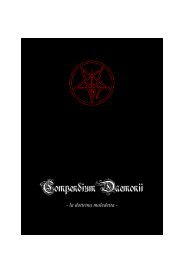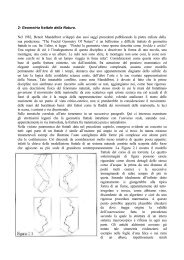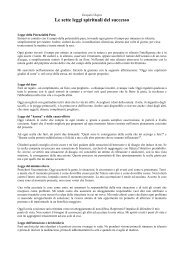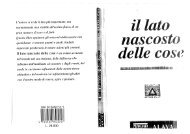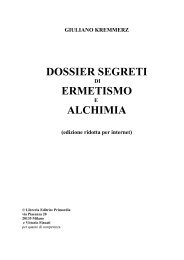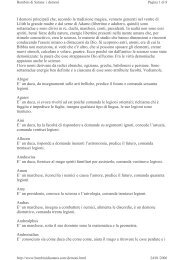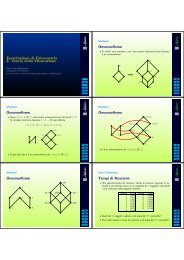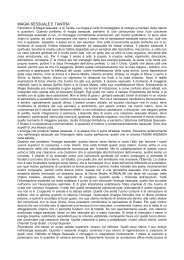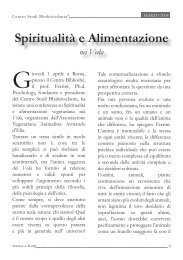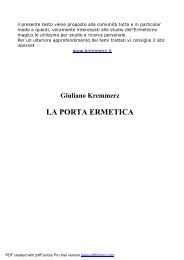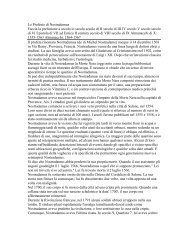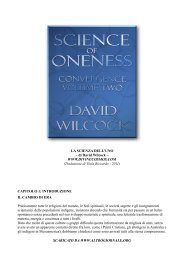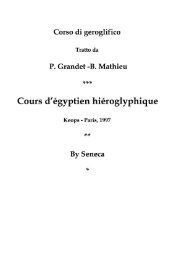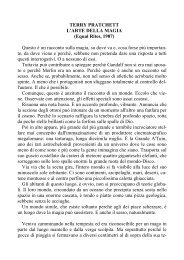40 TALIBANIsmael Khan abandoned Herat fleeing with his commanders and severalhundred men to Iran. The next day a pro-government mob in Kabul,incensed at the loss of Herat, attacked and sacked the Pakistan Embassy,wounding the Pakistani Ambassador as government soldiers looked on.Relations between Kabul and Islamabad sunk to an all-time low as PresidentRabbani openly accused Pakistan of trying to oust him from powerthrough the Taliban.The Taliban now controlled the entire west of the country, the sensitiveborder region with Iran and for the first time ruled an area which wasnot predominantly Pashtun. The Taliban treated Herat as an occupiedcity, arresting hundreds of Heratis, closing down all schools and forciblyimplementing their social bans and Sharia law, even more fiercely thanin Kandahar. The city was garrisoned not by local defectors, but hardcorePashtun Taliban from Kandahar and the administration was handed overto Durrani Pashtuns, many of whom could not even speak Persian andtherefore were incapable of communicating with the local population.Over the next few years not a single local Herati was to be inducted intothe administration. For the sophisticated population, who were now ruledby what they considered gross, uneducated Pashtuns who had no idea ofthe past magnificence or history of the city, the only thing left was to goto Jami's tomb and read his sad epitaph.When your face is hidden from me, like the moon hidden on a dark night,I shed stars of tears and yet my night remains dark in spite of all thoseshining stars. 9The fall of Herat was also the beginning of the end for the Rabbanigovernment. Bolstered by their victories, the Taliban launched anotherattack on Kabul during October and November, hoping to gain groundbefore the winter snows suspended further fighting. Masud counterattackedin late November and pushed them back, resulting in hundredsof dead. But the Taliban were to persist and were now to try other meansof conquering the city, weakening Masud's front lines by bribes ratherthan tank fire.3KABUL 1996:COMMANDER OF THEFAITHFULTsBy 20 March more than 1,200 Pashtun religious leaders from south,'ravelling by jeep, truck and horseback hundreds of Afghan mullahsbegan to descend on Kandahar in the cool spring weather of 1996.west and central Afghanistan had arrived in the city. They were housedand fed in government offices, the old fort and the covered bazaar, whichwere turned into enormous dormitories by the simple act of throwinghundreds of carpets on the floor so that the mullahs could sleep.It was the biggest gathering of mullahs and ukma that had ever takenplace in modern Afghan history. Significantly absent were local militarycommanders, traditional tribal and clan leaders, political figures from thewar against the Soviets and non-Pashtun representatives from northernAfghanistan. Only religious leaders had been summoned by Mullah Omarto debate a future plan of action, but more importantly to legitimize theTaliban leader as the all powerful leader in the country.The ten-month Taliban siege of Kabul had failed to crack the city andas Taliban casualties mounted, there was growing unrest in their ranks.During the long winter months, moderates in the movement openlytalked of the need for negotiations with the Kabul regime. Hardlinerswanted to continue the conquest of the entire country. There were alsobroad divisions within the Pashtuns. The Kandaharis grouped aroundOmar wanted the war to continue, while those representing Pashtun areasrecently conquered by the Taliban wanted peace and an end to the conflict.Everyone outside the country also realised that the Taliban were at acrossroads. 'The Taliban cannot take Kabul nor can Masud take Kandahar.How will the Taliban evolve if they fail to take Kabul? Even if they
42 ~ TALIBANdo manage to take Kabul how will the rest of Afghanistan accept theirtype of Islamic system?' the UN mediator Mehmoud Mestiri told me. 1 Formore than two weeks the Shura continued with meetings lasting all dayand all night. Separate Shuras discussed issues such as the political andmilitary future, how best to impose Sharia law and the future of girls'education in Taliban-held areas. The discussions were all held in extremesecrecy and foreigners were banned from Kandahar for the duration. HoweverPakistani officials were there to monitor the Shura, including thePakistani Ambassador to Kabul Qazi Humayun and several ISI officerssuch as Colonel Imam, Pakistan's Consul General in Herat.To patch over their differences, the core group of Kandaharis aroundMullah Omar nominated him to become the 'Amir-ul Momineen' or'Commander of the Faithful', an Islamic title that made him the undisputedleader of the jihad and the Emir of Afghanistan. (The Taliban werelater to rename the country as the Emirate of Afghanistan). On 4 April1996, Omar appeared on the roof of a building in the centre of the city,wrapped in the Cloak of the Prophet Mohammed, which had been takenout of its shrine for the first time in 60 years. As Omar wrapped andunwrapped the Cloak around his body and allowed it to flap in the wind,he was rapturously applauded by the assembled throng of mullahs in thecourtyard below, as they shouted 'Amir-ul Momineen.'This oath of allegiance or 'baiat' was a procedure similar to whenCaliph Omar was confirmed as leader of the Muslim community in Arabiaafter the death of the Prophet Mohammed. It was a political masterstroke,for by cloaking himself with the Prophet's mantle, Mullah Omar hadassumed the right to lead not just all Afghans, but all Muslims. The meetingended with a declaration of jihad against the Rabbani regime. TheTaliban vowed not to open talks with any of their adversaries anddeclared that a final decision on allowing women to be educated couldonly be tackled 'when there was a legitimate government in Afghanistan'.The hard-liners and Mullah Omar had won. 2But for many Afghans and Muslims elsewhere it was a serious affrontto propriety that a poor village mullah with no scholarly learning, notribal pedigree or connections to the Prophet's family should presume somuch. No Afghan had adopted the title since 1834, when King DostMohammed Khan assumed the title before he declared jihad against theSikh kingdom in Peshawar. But Dost Mohammed was fighting foreigners,while Omar had declared jihad against his own people. Moreover, therewas no sanction for such a title in Islam, unless all of the country's ukmahad bestowed it upon a leader. The Taliban insisted that their meetingconstituted the Koranic requirement of 'ahl al-hal o aqd', literally 'thepeople who can loose and bind' or those empowered to take legitimatedecisions on behalf of the Islamic community.KABUL 1996: COMMANDER OF THE FAITHFUL ~ 43For Omar the title gave him badly needed legitimacy and a new mystiqueamongst the Pashtuns that no other Mujaheddin leader had acquiredduring the war. It would allow him to distance himself still further fromday-to-day politics, give him an additional excuse not to meet foreigndiplomats and allow him to be more inflexible in either broadening thebase of the Taliban leadership or in talking to the opposition. Omar couldnow always retreat behind his title and decline to meet opposition leaderson an equal footing.But the ukma meeting had deliberately not come to any decisions onthe much more sensitive questions on how the Taliban planned to ruleAfghanistan and what if anything they planned for the country's economicand social development. Such questions were to remain permanentlyunanswered, even after they captured Kabul. 'We have not gonepublic yet on our structure because we are not strong enough to decidewho will be the Prime Minister or the President,' said Mullah Wakil, theaide to Omar. 'The Sharia does not allow politics or political parties. Thatis why we give no salaries to officials or soldiers, just food, clothes, shoesand weapons. We want to live a life like the Prophet lived 1,400 yearsago and jihad is our right. We want to recreate the time of the Prophetand we are only carrying out what the Afghan people have wanted forthe past 14 years,' he added. 3 Another Taliban leader put it even moresuccinctly. 'We can love our enemies but only after we have defeatedthem.'Only a day earlier Taliban emissaries had told Mestiri in Islamabad thatthey were ready to talk to President Rabbani. 4 'If the Taliban are readyto talk and President Rabbani is ready to talk, then this is really something,'said Mestiri hopefully. The final result of the ukma meeting was ablow that neither Mestiri nor the UN peace effort was to recover fromand in May Mestiri resigned from his job.The ukma meeting had also been prompted by the regime's growingpolitical successes at wooing other opposition leaders and President Rabbani'sincreasing international standing. Kabul's military successes atseeing off Hikmetyar, the Hazaras and the Taliban attack had finally persuadedthe regime that this was an opportune moment to try and gaingreater political acceptability, by broadening the base of their support.President Rabbani began talks with other warlords, holding out the carrotthat he was prepared to set up a new government which could includethem. In January and February 1996, Rabbani's emissary Dr AbdurRehman met separately with Gulbuddin Hikmetyar at Sarobi, with GeneralRashid Dostum in Mazar-e-Sharif and the Hizb-e-Wahadat leadershipin Bamiyan. In February all the opposition groups except for the Talibanagreed to set up a ten-man council to negotiate peace terms with Kabul,even as the Taliban continued to demand the surrender of the regime. A
- Page 1 and 2: YALE NOTA BENE"The broader storyher
- Page 3 and 4: TalibanMilitant Islam,Oil and Funda
- Page 5 and 6: Vi ~ CONTENTSChapter 8A Vanished Ge
- Page 7 and 8: AFGHANISTAN•^ UZBEKISTAN J TAJIKI
- Page 9 and 10: 2 ~ TALIBANaccounts for some 40 per
- Page 11 and 12: "6 ~ TALIBANgas riches of landlocke
- Page 13 and 14: 10 ~ TALIBANgious mix that was to m
- Page 15 and 16: Part 1History of theTaliban Movemen
- Page 17 and 18: 18 ~ ISLAM OIL AND THE NEW GREAT GA
- Page 19 and 20: 22 ~ ISLAM OIL AND THE NEW GREAT GA
- Page 21 and 22: 26 ~ ISLAM OIL AND THE NEW GREAT GA
- Page 23 and 24: 30 ~ ISLAM OIL AND THE NEW GREAT GA
- Page 25 and 26: 34 TALIBANKabul- Hikmetyar had alli
- Page 27: 38 ~ TALIBANrHERAT 1995: GOD'S INVI
- Page 31 and 32: J46 ~ TALIBANgreater weight to UN e
- Page 33 and 34: 50 ~ TALIBANas they hung from steel
- Page 35 and 36: 54 ~ TALIBANthey would help rearm t
- Page 37 and 38: 58 TALIBANGul Mohammed Pahlawan, Gh
- Page 39 and 40: 62 TALIBAN2,500 Taliban, who had re
- Page 41 and 42: 66 TALIBANshould throw all aid agen
- Page 43 and 44: 70 ~ TALIBANyears of battle and hel
- Page 45 and 46: 74 ~ TALIBANThousands of Hazaras we
- Page 47 and 48: 78 TALIBANhas become a plague,' sai
- Page 49 and 50: NEW STYLE FUNDAMENTALISM OF THE TAL
- Page 51 and 52: 86 TALIBANsity students - Hikmetyar
- Page 53 and 54: 90 TALIBANSharia was heavily influe
- Page 55 and 56: 94 TALIBANinflamed the debate in th
- Page 57 and 58: 98 TALIBANizing factor of Islam, it
- Page 59 and 60: 102 TALIBANadministrations made the
- Page 61 and 62: 106 ~ TAUBANfrom working, but it no
- Page 63 and 64: TALIBANUniversity, she held down a
- Page 65 and 66: 114 TALIBAN A VANISHED GENDER 115Ta
- Page 67 and 68: 118 TALIBANUS$1,300 - a small fortu
- Page 69 and 70: 122 TALIBANper cent of the total Pa
- Page 71 and 72: 126 TALIBANequipment, no electricit
- Page 73 and 74: 130 ~ TALIBANfight with the Mujahed
- Page 75 and 76: 134TALIBANAugust 1996 noted that Bi
- Page 77 and 78: 138 ~ TALIBANwho were using the Kho
- Page 79 and 80:
11DICTATORS AND OILBARONS: THE TALI
- Page 81 and 82:
146 TALIBAN DICTATORS AND OIL BARON
- Page 83 and 84:
150 — TALIBANgrowth of beards and
- Page 85 and 86:
154TALIBAN1998 when international o
- Page 87 and 88:
158 ~ TALIBANaround Afghanistan? Af
- Page 89 and 90:
162 TALIBAN ROMANCING THE TALIBAN 1
- Page 91 and 92:
166 TALIBAN ROMANCING THE TALIBAN 1
- Page 93 and 94:
ROMANCING THE TALIBAN 2: 1997-99 17
- Page 95 and 96:
174 — TALIBANnon-Russian pipeline
- Page 97 and 98:
178 — TALIBANROMANCING THE TALIBA
- Page 99 and 100:
182 ~ TALIBANApril 1999. 'The US ha
- Page 101 and 102:
186 ~ TALIBANters or the transport
- Page 103 and 104:
190 ~ TALIBANThis Wild West of free
- Page 105 and 106:
194 ~ TALIBANgovernance. Pakistani
- Page 107 and 108:
198 TALIBAN SHIA VERSUS SUNNI: IRAN
- Page 109 and 110:
202 TALIBAN SHIA VERSUS SUNNI: IRAN
- Page 111 and 112:
206 — TALIBANin Afghanistan - to
- Page 113 and 114:
210 — TALIBANand antagonism. The
- Page 115 and 116:
214 ~ TALIBANdrawn since 1996 - a P
- Page 117 and 118:
218 ~ TALIBANated and severely puni
- Page 119 and 120:
Origins of Members of the Taliban M
- Page 121 and 122:
APPENDIX 3 ~ 227Appendix 3A CHRONOL
- Page 123 and 124:
230 ~ TALIBANgraves near Shebarghan
- Page 125 and 126:
234 ~ TALIBAN8 June. US FBI places
- Page 127 and 128:
238 ~ TALIBAN1995 January16 MarchAp
- Page 129 and 130:
242 ~ TALIBANJune21 August10 Septem
- Page 131 and 132:
246 ~ TALIBANDupree, Nancy Hatch, A
- Page 133 and 134:
250 ~ NOTESChapter 31 Interview wit
- Page 135 and 136:
254 ~ NOTESmuddin, Religious Police
- Page 137 and 138:
258 NOTES13. The Japanese company M
- Page 139 and 140:
262 ~ NOTES28. Waxman, Sharon, 'A c
- Page 141 and 142:
Abbas, Mulla Mohammed 22,61,100Abda
- Page 143 and 144:
INDEX - 270Hazaras (continued)burea
- Page 145 and 146:
INDEX ~ 274nF»r\/FaliViar» milita
- Page 147:
INDEX ~ 278Talibans (continued)Sunn



